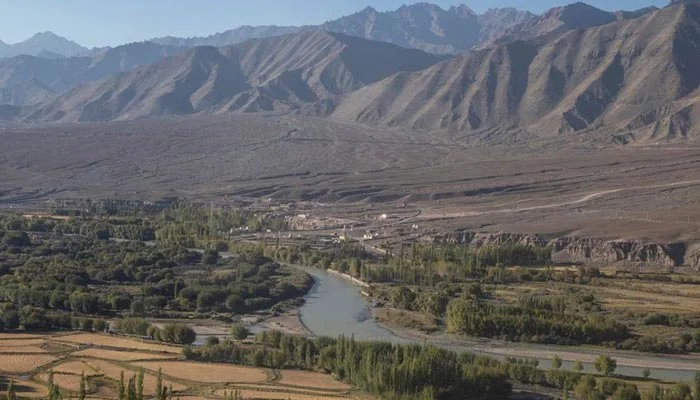Masood Khalid Khan
The Indus Waters Treaty (IWT), signed in 1960 under the World Bank’s auspices, was once hailed as a rare triumph in transboundary cooperation between two hostile neighbors. It divided the six rivers of the Indus basin: India received rights to the eastern rivers—Ravi, Beas, Sutlej—while Pakistan retained rights to the western rivers—Indus, Jhelum, Chenab. Crucially, the Treaty mandated data-sharing on river flows, reservoir operations, and canal withdrawals. Transparency was its lifeline, preventing suspicion and safeguarding lives. Yet, in 2025, as Pakistan was devastated by catastrophic floods, India allegedly withheld critical hydrological data, amplifying destruction downstream. This silence shattered trust and undermined the very spirit of the Treaty.
For decades, data-sharing protocols had helped avert tragedies, especially during monsoon seasons. But in 2025, silence replaced cooperation. Beyond withholding data, India’s massive infrastructure expansion in Ladakh and Himachal Pradesh—dams, deforestation, glacier disturbance—further destabilized seasonal water flows. By suspending transparency, India effectively weaponised climate change, turning rivers into instruments of insecurity. Pakistan’s own negligence, coupled with pseudo-experts who pushed India’s narrative of renegotiation, left the country vulnerable.
India unilaterally declared the Treaty “in abeyance” in April 2025, citing climate change and security concerns. International law is clear: treaties cannot be revoked unilaterally. Article XII of the IWT and the Vienna Convention affirm this. The International Court of Arbitration rightly upheld the Treaty in August 2025. Yet, the damage was done: lives were lost, billions destroyed, and Pakistan’s faith in global mechanisms shaken.
What options remain for Pakistan? First, political leadership must end complacency. Water is not charity; it is an international right. Pakistan must raise the issue aggressively at the United Nations, the World Bank, and climate forums. Just as small island states have internationalised climate justice, Pakistan must frame India’s silence as climate aggression—a violation of humanitarian and environmental law.
https://facebook.com/RepublicPolicy
Second, administrative reforms are urgent. Institutions must prioritize scientific expertise over pseudo-experts in three-piece suits. A permanent Water and Climate Security Cell should be established, integrating real-time satellite monitoring with transparent public communication. Disaster preparedness must include flood forecasting, reservoir management, and cross-border early-warning diplomacy.
https://tiktok.com/@republic_policy
Third, Pakistan must explore international partnerships. China’s upstream investments, Turkey’s water diplomacy, and Central Asian models of river-sharing all offer strategic lessons. Pakistan should also leverage international climate finance, ensuring India cannot monopolize carbon credits without accountability. If India claims credits for projects impacting Pakistan’s rivers, Islamabad must challenge these under UNFCCC provisions.
https://instagram.com/republicpolicy
Lastly, accountability at home is non-negotiable. Those who weakened Pakistan’s stance on the IWT, ignored expert warnings, or facilitated India’s climate credit gains must face scrutiny. Silence within is as dangerous as silence across the border. The betrayal was not only external; it was internal, rooted in negligence, sycophancy, and misplaced trust.
https://whatsapp.com/channel/0029VaYMzpX5Ui2WAdHrSg1G
The Indus Waters Treaty symbolized survival in a hostile region. In 2025, silence drowned that hope. Pakistan cannot afford further betrayal—by enemies or by its own elites. Water is life, and its protection must now be pursued with political courage, administrative reform, and international alliances. The rivers cannot speak, but they carry the story of survival. It is Pakistan’s duty to ensure that story does not end in silence.
















